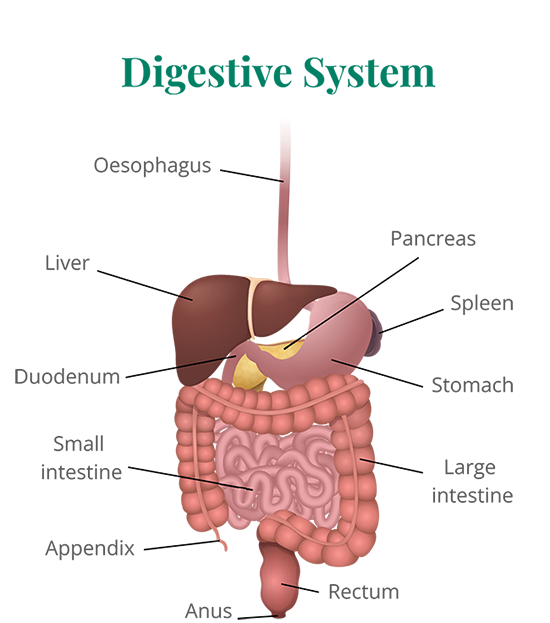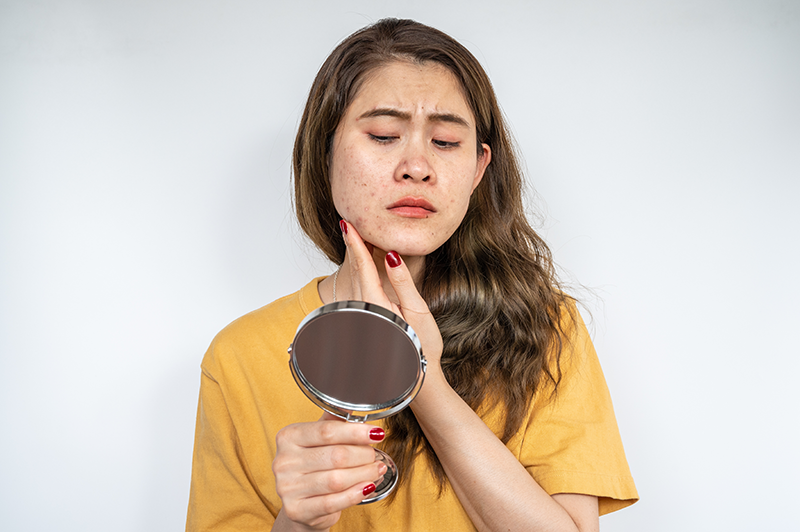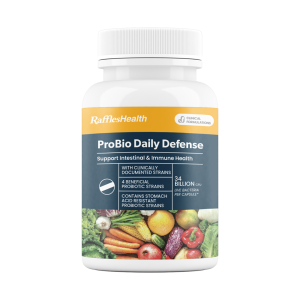Guard Your Gut: Five Tips for Better Digestive Health

Imagine a strong immune system, a stomach free from discomfort, sharp mental clarity, and an uplifted mood. This is the power of a healthy gut. Now contrast that with constant bloating, draining fatigue, and recurring migraines that hold you back. Which would you choose?
Many Singaporeans are increasingly paying attention to gut health, especially with the rising prevalence of colon and rectal cancer in Singapore. But what exactly is the gut, and how can we best care for it?
Understanding the gut
The gastrointestinal tract, which is commonly known as the gut, plays a crucial role in breaking down and absorbing nutrients and minerals from the food we consume. Moreover, gut health is closely tied to the gut microbiome, which consists of trillions of bacteria and fungi that impact our overall health. In essence, our gut health directly influences our immune system, metabolic processes, mood, and skin health.

Achieving optimal gut health may sound simple in theory — just eat right, as people often say. However, this oversimplifies the truth of caring for your gut. In reality, nurturing a healthy gut requires more than just a proper diet. It involves deliberately caring for our internal systems, ensuring they effectively process the daily changes we undergo. Furthermore, it entails actively nourishing our microbiomes with the right bacteria they need and crave.
Signs of an unhealthy gut
An unhealthy gut can manifest through various symptoms, and these can differ from person to person. Some of the more frequently encountered signs of poor gut health include poor digestion, bloating, stomachaches, and acid reflux. For instance, if you find yourself experiencing gas and bloating after consuming specific foods, it may suggest that the bacteria in your gut are not effectively breaking down that particular food protein.
Another common symptom of an unhealthy gut is acne. Certain individuals tend to experience breakouts following the consumption of foods high in refined sugar and saturated fat. This occurrence can be attributed to the impact of gut bacteria on the skin’s condition.

Tips to caring for your gut
To maintain a healthy gut and reduce the risk of digestive diseases, here are some tips to bear in mind:
Prioritise rest and manage stress levels
Getting enough restful sleep is essential for allowing your body and gut to regenerate and repair. Aim for seven to nine hours of sleep each night. Incorporating stress-management techniques into your daily routine, such as meditation, deep breathing exercises, or engaging in hobbies are some things you could do to help you unwind.
Hydration is key
Proper hydration plays a crucial role in supporting digestion and keeping your gut hydrated. Aim for at least one-and-a-half to two litres of water daily, and adjust this amount based on your activity level and the weather. Increase your water intake if you often engage in physical activities and perspire more.
Choose whole foods and boost fibre intake
Processed food and excessive sugar intake can have adverse impacts on your gut health as it promotes inflammation and disrupts the balance of beneficial gut bacteria. Switch out your processed food for whole, unprocessed foods, and minimise your consumption of sugary snacks and beverages. Do not forget your vegetables and fruits for adequate fibre intake!

Fibre helps maintain regular bowel movements, creates a healthy gut environment that supports the growth of beneficial gut bacteria. Additionally, include probiotic supplements along with probiotic- and prebiotic-rich foods in your diet to help reduce harmful gut bacteria.
Stay active
While we all know how beneficial exercise is for our physical and mental health, exercise can also influence our gut bacteria. Engage in activities you enjoy doing, whether it is walking, running, or cycling, make it part of your lifestyle for healthy living.
Get screened
When it comes to our health, prevention is always better than cure. Do not just listen to your gut feeling and visit the doctor when you feel unwell.
Make a conscious effort to go for your annual health screening, and include tests such as colonoscopy or gastroscopy when required or as per your doctor’s advice. A colonoscopy should be considered earlier in life if there is a family history of colorectal cancer or other diseases related to the digestive tract.
In conclusion, taking care of your gut health requires a holistic approach that involves nourishing your body with the right foods and adopting healthy lifestyle habits. There is no one-size-fits-all solution, so it is important to incorporate all of these tips and allow them to work together in tandem to fight off harmful gut bacteria.
Remember, significant changes take time, so stay committed to these habits and remain dedicated on your journey to a healthier gut!





















